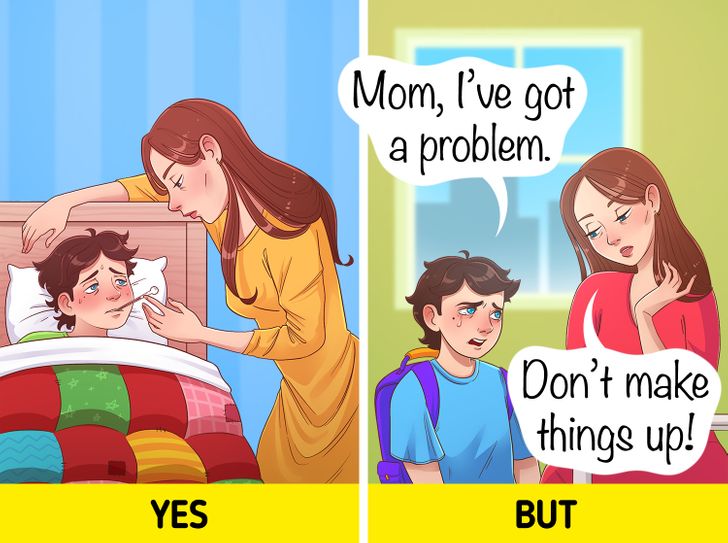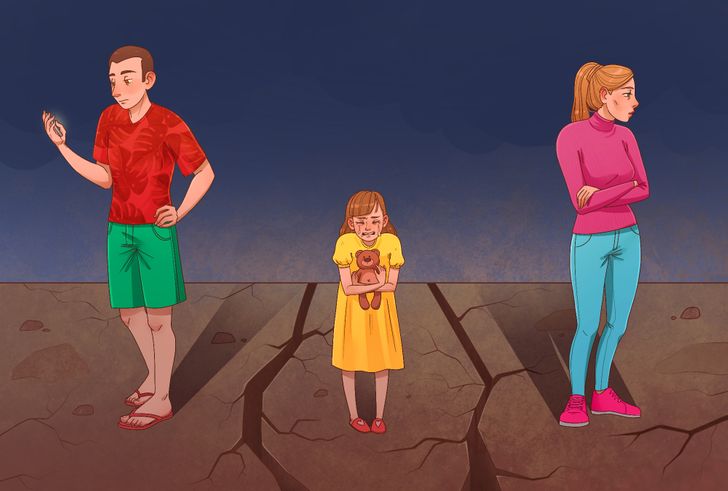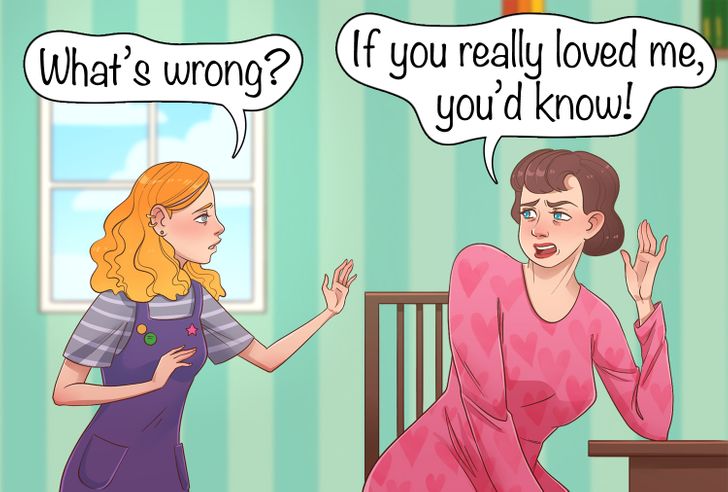Emotional maturity means knowing how to control your emotions, taking responsibility for your mistakes instead of blaming others, and being accepting of other people’s points of view. Unfortunately, being an adult does not equal being emotionally mature, and that can have negative consequences on their children.
We at Trends believe it’s very important to work on your emotional intelligence. But let’s see what emotionally immature parents look like.
1. They only know how to take care of your physical needs.

Emotionally immature parents may be great at making sure their children’s basic needs are met. They might provide them with food, a home, and education, and they’ll take care of them when they’re sick. But such parents aren’t very good at giving emotional support. When their child is worried or upset about something, they might dismiss those feelings because they cannot understand how a child who’s well-provided for could have any problems.
2. They don’t know how to express their feelings.

When it comes to expressing deep emotions, emotionally immature parents aren’t comfortable with it. It’s important for a child to know that they’re loved, but such parents aren’t very good at showing affection. It might be because of the way they were raised themselves if emotions weren’t something to be shared or talked about. Then, later in life, they become afraid of seeming vulnerable or weak if they want to connect with their child on a deeper emotional level.
3. They don’t tolerate differences.

Emotionally immature parents think they’re the only ones who know the right way to do things. If you have a different opinion, there’s no point in negotiating to find a middle ground — your point of view will simply not be accepted. So when you were a child, you probably always had to do things the way your parents wanted, and what they believed was assumed to be the best for you.
4. They act childish.

Because emotionally immature parents don’t know how to express their emotions in a healthy way, it might be hard to tell how they feel. Still, they might expect their children to somehow know what emotions they’re experiencing and what they need. And if the child doesn’t know that, they might get upset and make the child feel guilty for not giving them what they wanted.
5. They often lash out at you.
2,124 3 minutes read
Related Articles
Check Also
Close
-
18 Clever Ways to Use WD-40June 24, 2024




